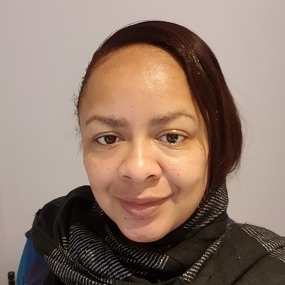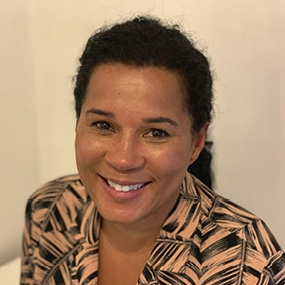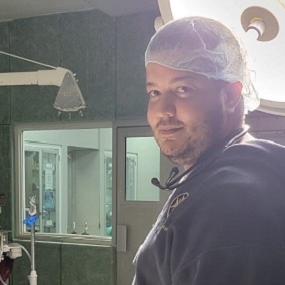What does Black History Month mean to you?
The RCoA welcomes Black History Month as an opportunity to celebrate the huge contribution of black anaesthetists and other healthcare workers to the NHS.
We value the rich diversity of our membership and recognise that black healthcare workers are a fundamental part of our specialty, our College and our community.
To celebrate Black History Month, we are inviting black anaesthetists to share their experiences, as we reflect on what more the College can do to support the theme of Time for change: actions not words.
We are grateful for all contributions, which we are sharing on this page. If you would like to share your story, find out how in our Black History Month news post.

Black History Month has led me to reflect on the incredible journey and progress we have made. I am a Jamaican who was able to come to the United Kingdom for further training in anaesthesia. The Windrush generation came and worked in the fledgling NHS, overcoming racial discrimination and economic hardship. The sacrifice and hard work of my predecessors has allowed me to have the opportunities I enjoy today.
The motto of my secondary school is Summa virtute et humanitate, meaning with utmost courage and courtesy. I hope to continue the tradition of excellence, and courageously forge pathways for aspiring physicians. Although, there have been many challenges, there are opportunities for advancement, and increasing support from organisations such as the Royal College of Anaesthetists gives me hope of a brighter future.
Follow Andrea on Twitter @DrAM876

Dr Sethina Watson offers support and encouragement to those considering a career in anaesthesia: "So this message is really to say that there are black anaesthetists and we would love to see more of you join the specialty. Find me on the internet - find many of us - and we will give you that support that you need and that encouragement to go for it and try to get into the specialty."
Follow Sethina on Twitter @morefluids

Dr Daniel Olaiya shares his thoughts about Black History Month in this video contribution. He reflects on a memorable appendectomy and recommends the BBC2 programme We are Black and British.
Follow Daniel on Twitter @Theflydoctor1 and on Instagram @the.fly.doctor

I am an anaesthetist and intensivist from Jamaica, and this is what Black History Month means to me:
To highlight that once you put your mind to your dreams, you can achieve anything. Hard work and determination is the key to success. I want to inspire others to think big and show them that the world is their oyster!
Follow Andre on Twitter @AndreMcD25

“Inclusion is core to the NHS Constitution, yet it remains one of the biggest challenges that health systems face globally, nationally and systemically.” NHS Leadership Academy.
Black History Month serves to highlight the past accomplishments and contributions of our community whilst simultaneously confronting the challenges that still exist today and trying to define a sustainable way forward.
I emigrated to the United Kingdom from Jamaica, and it has been quite an illuminating experience. Though the people and patients we serve come from such diverse populations, this diversity is not quite reflected within the medical profession and its leadership and by extension in my own specialty, Anaesthesia and Intensive Care.
Although these observations are sobering, I think it is more important to not be defined by them and instead make active efforts to create change. As a Jamaican, I have always been particularly motivated by persons such as Mary Seacole, Harold Moody and Monica Lewin. As trailblazers, their demonstration of resilience in the face of adversities and subsequent achievements have contributed and created a space for persons like myself to enter and succeed in a profession and specialty I love, to seek and gain further opportunities and assist others in the process.
It is therefore important that I am a positive role model with the hope of empowering others who try to forge their own paths toward success. The journey has surely not been one without challenge and this continues on an almost day-to-day basis, but I take some comfort in appreciating that there is work happening to create and solidify a time and continuum for action.
An appreciation of the black culture and our meaningful contributions to society should however not be relegated only to a month but should form the basis for constant reference to inform and educate others and assist with creating a more positive narrative. One can only hope that as a modern society we can continue to engender the change we want to see.
Follow Deborah on Twitter @DeborahR0120
